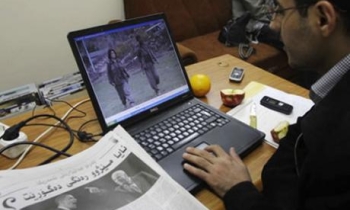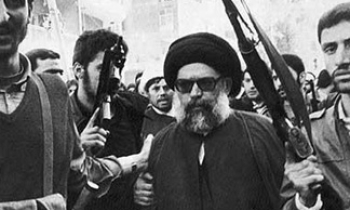Four Mexican journalists who were detained by soldiers during a drug raid were abused and assaulted during their detention.
Crime reporter Sinhué Samaniego Osoria spoke to the Committee to Protect Journalists (CPJ) Monday and detailed the abuse that he and three other reporters suffered during their arrest by soldiers last week in the northern state of Coahuila.

Samaniego, a crime reporter for the Monclova-based daily Zócalo, said that he and colleagues Manolo Acosta from Zócalo, Jesús Meza González from the Monclova daily La Voz de Coahuila, and Alberto RodrÃguez Reyes from the local television station Canal 4 were arrested, beaten, and aggressively questioned by Mexican soldiers on the night of August 7.
Samaniego and Acosta were covering a car accident at 10:20 pm. when they heard news that a military convoy was operating in Monclova, he told CPJ. The reporters decided to search for the convoy, which they presumed to be an antinarcotics operation. According to Samaniego, along the way they met Meza and RodrÃguez who were also looking for the military operation. The reporters were travelling in three separate cars, each visibly identified with their outlets’ logos.
When they saw the convoy pulling into the local army barracks, the reporters decided to call off their search. However, a few blocks from the army quarters, a speeding white pickup truck passed their cars and blocked them. The journalist described how armed individuals forced the reporters out of their cars and onto the back of the truck. According to Samaniego, the individuals were not wearing full army uniforms and did not identify themselves at any moment.
The reporters were told to lie on the truck facing down as they were driven to different parts of the city. At different times, unidentified individuals blindfolded them and tied their hands before they were allowed to step off the truck. Samaniego said the four reporters were punched repeatedly in the face, the chest and the stomach. None received serious injuries.
The soldiers interrogated the journalists several times, asking what they were doing, where they worked and where they lived. Samaniego told CPJ that all four were carrying vests marked “Coahuila Press,†although they weren’t carrying press credentials.
After a couple of hours, the soldiers indicated that the reporters were going to be released. Moments later, however, they questioned Acosta and RodrÃguez about their alleged possession of a firearm and drugs. Both denied the accusation, said their colleague. Samaniego told CPJ none of the reporters saw the alleged weapon or drugs during their interrogation.

At 2 p.m. on August 8, the Mexican army officially transferred the reporters into the custody of the attorney-general’s office in Coahuila, according to local press reports. The army accused the reporters of possessing a firearm and committing drug-related crimes, both federal violations, specified Samaniego.
Samaniego told CPJ that neither he nor his colleagues were carrying weapons or drugs on the night they were arrested. “It would completely illogical for us to carry that sort of thing while covering a military operation,†he added. According to the reporter, there is no forensic evidence that the drugs or weapon were ever in their possession.
“We are outraged by the details Sinhué Samaniego Osoria gave of the abuses which he and the other three reporters endured while detained by the Mexican army,†said CPJ Executive Director Joel Simon. “Mexican authorities must conduct a thorough investigation of the incident.â€
The four reporters were released on bail in the afternoon of August 10, their lawyer, Luis Humberto RodrÃguez Saenz, told CPJ. According to the Mexico City-based Special Prosecutor for Crimes against the Press, the charges against the reporters are still pending. Mexican authorities told CPJ the arresting soldiers believed the journalists were members of the illegal paramilitary group Los Zetas, who allegedly employ spotters to monitor the movements of the military.
Mexico has become one of the most hazardous places for journalists in Latin America, CPJ research shows. Drug trafficking and organized crime have both become greater problems there in the last couple of years, and reporters who cover these dangerous stories are often threatened or even killed.









